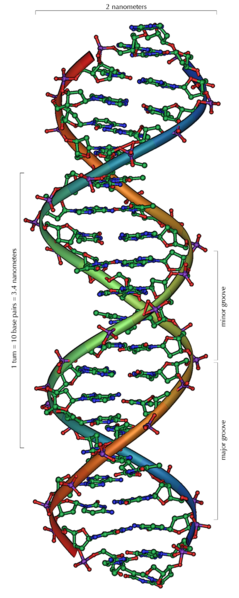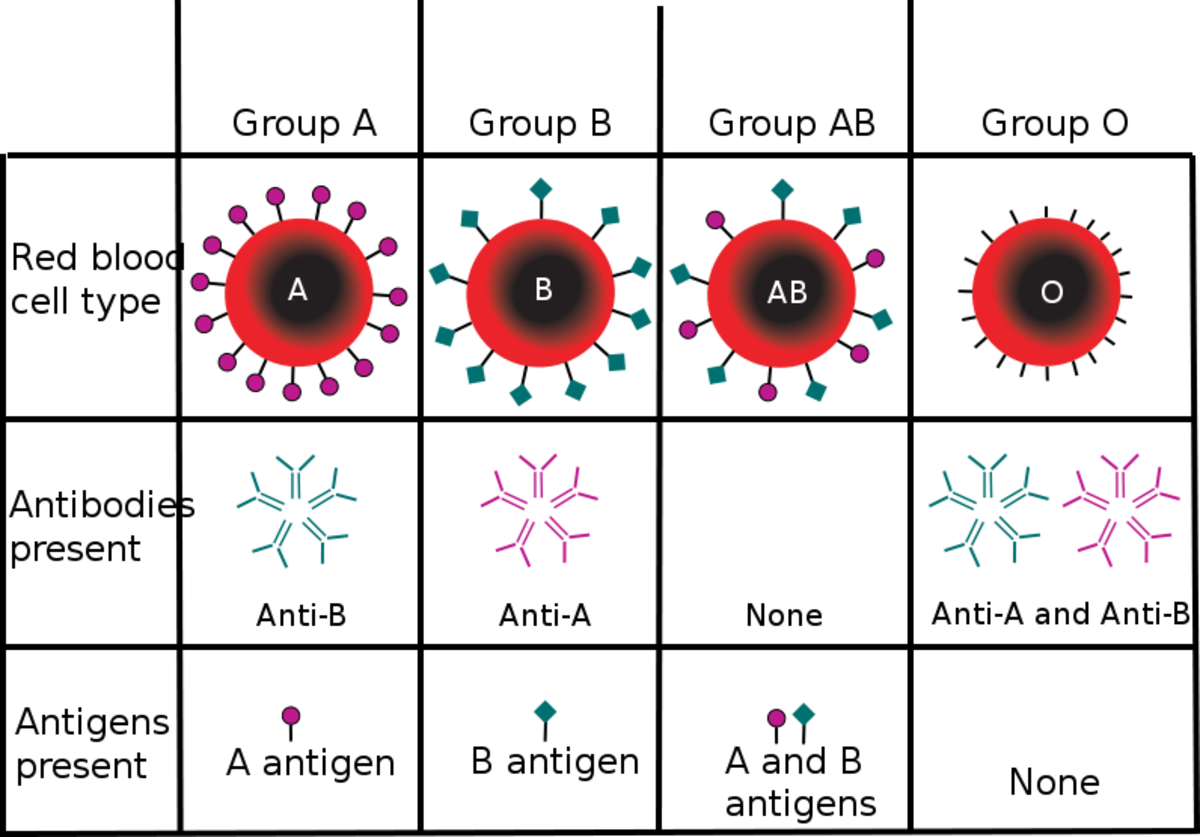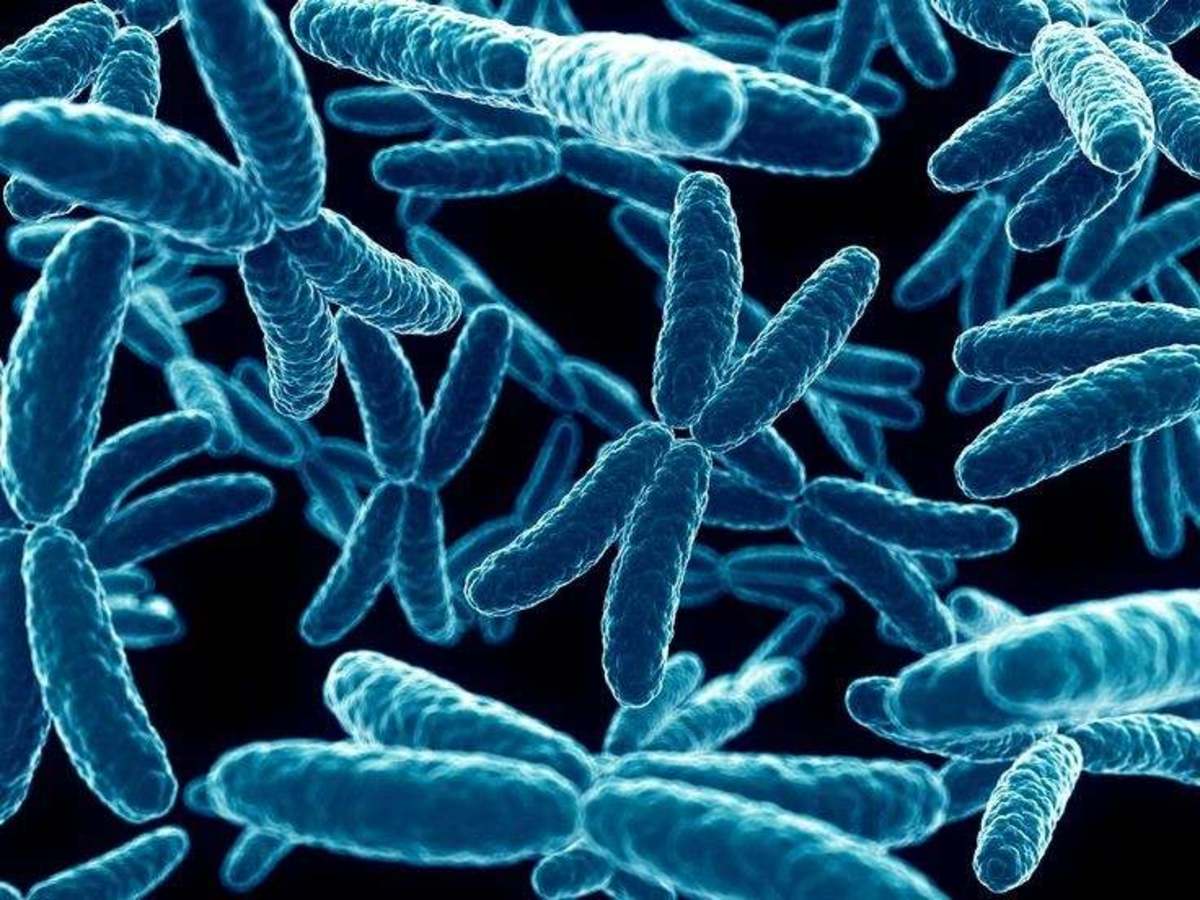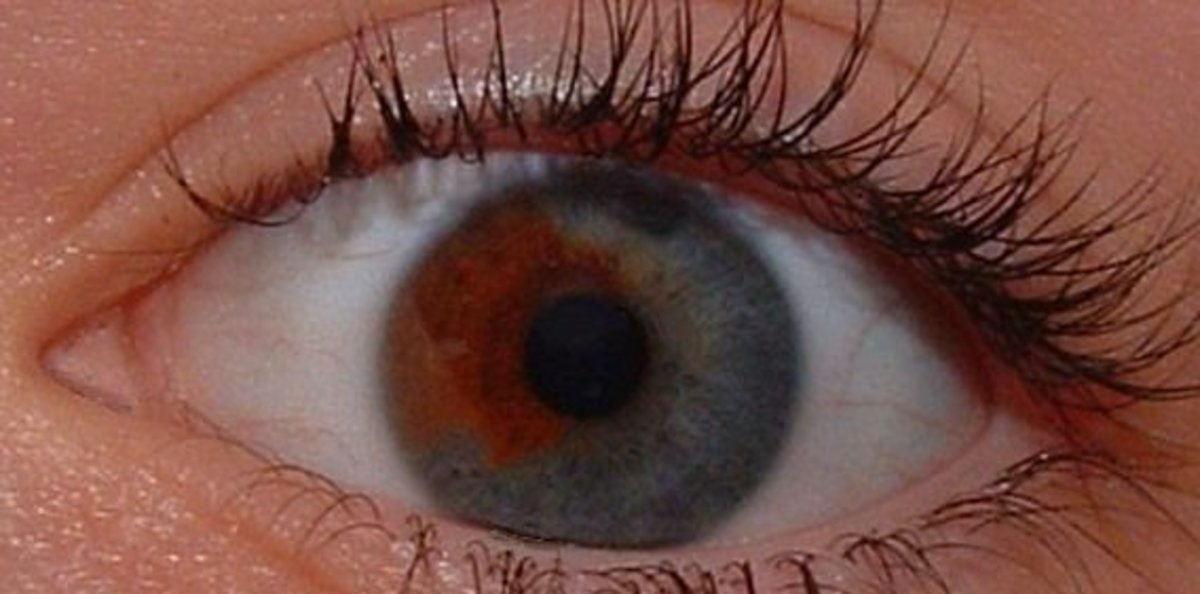Born This Way- A Glimpse into Behavioral Genetics

Back in the early 90s a lot of press was given to the idea that there was a ‘gay gene.’ All of this talk gave people the impression that somewhere in the human genome, there was a string of nucleotides that determined whether an individual was attracted to the same or the opposite sex. It was as simple as that, a particular sequenced strand of DNA dictated a person’s sexuality. Clearly this is not giving us enough credit regarding the complexity of our biology, our bodies, and our behavior.
It has been long since established that our genes play a large role in disease in the body. Ranging from predisposition to full on causing disease, our DNA is more often than not involved to some extent. The correlation from DNA to disease is often clear. Outwardly disease causes signs and symptoms, which in turn can be traced internally to various pathways in the body. Then these physiological pathways can be linked to the gene or genes involved in making components necessary for the function of the given pathway. In some cases with diseases such as phenylketonuria the story is clear. The individual is born with a deficiency in the phenylalanine hydroxylase gene causing loss of function of the enzyme, leading to substrate accumulation. The substrate is not broken down to a safe metabolite and eventually accumulates to a point of toxicity. The outward effect, mental retardation, is directly related to the accumulation of the toxic metabolite in the brain. In other cases the presence of disease can be contributed to by genetics as is the case with heart disease. Other factors involved in heart disease are environmental including lifestyle.
But what about behavior, how is it genetics plays a role in determining our behavior. Do someone’s genes dictate who they are attracted to or how they handle a situation? Are our genes responsible for our intelligence or bravery? Or if not responsible, do our genes contribute to various components of our personality and how we behave? As the example of heart disease shows multifactorial causes, is behavior the same- do genetics and environment contribute to a given behavioral trait? And if so, how is the outward behavior linked to a given biological pathway that involves the gene responsible for the behavior?
An intriguing branch of genetics is Behavioral Genetics where researchers look into whether behavioral traits are caused by genetics. This area of study is difficult for many reasons. Disease is black and white, there is a set of criteria and either a person has the disease or they don’t. The given disease can then be looked at on a genetics level, by studying the genes of those who have the disease and compare to those that do not have the disease. Summaries can be made about certain gene variants in people who have a given disease and the likelihood a person with a given variant will have a particular disease. The Breast Cancer genes, BRCA1 and BRCA2, are examples of genes associated with an increased chance of developing breast cancer when mutated. Additionally for a given disease, a geneticist often knows where to look. They can work in the opposite direction-starting outside of the body and working their way in. Symptoms can be traced to a particular system in the body and from there the suspected genes involved are looked into for dysfunction.

For behavioral genetics the situation is anything but black and white. How is a behavior or predisposition characterized in order for a yes/no answer to be made in a scientific way? Scientific studies, like the one linking phenylketonuria’s symptoms inward to the person’s genetics or the studies exploring the BRCA1/2 genes are based on experimental design. Both diseases in question have clear cut symptoms, giving a yes/no answer to whether the individual has a disease or not. But what about shyness-what is the definition of shyness? How is this behavior characterized in a scientific way? Even the example of intelligence, which could be technically defined by an IQ test, is difficult seeing you cannot sit a mouse down and have it take an IQ test. Most, if not all, early scientific studies are carried out on animals. Even though you can certainly ask human participants to take an IQ test, the groundwork is almost always done in other species. In order to study intelligence in mice, there needs to be a test applied to establish a yes/no for a given trait. As with the media treatment the gay gene has been given, the same applies to claims there is a ‘smart gene’ but when the study is looked at in-depth it shows mice improving a particular aspect of intelligence, for example memory, by altering a specific gene (Source 2). This shows that there isn’t a definitive yes/no for behavioral traits, there are varying definitions- as is the case with intelligence- and correspondingly there are many tests to gauge this particular trait.
These challenges in bringing behavioral genetics studies up to par in terms of experimental design ring true with studies examining homosexuality. There is no way to prove that someone is gay. Or that someone isn’t. Another layer to add is people may not be completely honest about their sexuality. One would think anyone uncomfortable with their true sexuality- either gay or straight- would shy away from being involved in studies of this nature. But this doesn’t rule out the possibility that individuals are falsely represented in studies looking into behavioral genetics.

Even prior to the complete sequencing of the human genome, researchers attempted to answer the question-Are there specific genes linked to an individual being gay? Beginning in the early 90s, homosexuality in males has been studied in terms of genetics. The OMIM, Online Mendelian Inheritance of Man, is a great resource. It is a comprehensive database of genes linked to diseases and behaviors. The HMS1 gene comes up as the ‘homosexuality 1 gene’ located on the X chromosome. Several references in the description show that studies have been conducted on families with multiple gay siblings. For the most part the studies have been focused on gay men not including gay women. Bailey and Pillard reported in 1991 when looking into sexual orientation for a given gay male in correlation to a monozygotic twin, a dizygotic twin, or an adoptive brother the statistics show the monozygotic twins have a 52% chance of the second twin also being gay, 22% of the dizygotic twin also being gay, and only 11% chance of an adoptive brother also being gay. Other researchers referenced in this citation show homosexuality is most likely X-linked, maternally passed down, showing incidence of gay family members occurring largely on the mother’s side of the family.
A comprehensive article published in 2005 on Boston.com ‘What Makes People Gay? By Neil Swidey (source 3) was unearthed in my research for this article. Swidey poses the inevitable question when discussing behavioral genetics- the nature vs. nurture argument. He goes on to discuss many factors that may contribute to male homosexuality, as well as topics regarding defining sexuality. His article also points out that Bailey and Pillard’s 1991 study was followed up in Australia with a 30% decrease in the compelling 52% chance of an identical twin also being gay in conjunction with the first twin.
This conflicting statistic points to my main concerns with conducting studies of this nature. If the enrollment into this study isn’t regulated then of course the data will vary from study to study. If a researcher set out to test a diabetes drug, but there was no way of determining if the enrolled patients 100% of the time actually had diabetes then of course the success of the treatment would vary. If there were healthy patients in the study who were listed as diabetes patients and the drug was having no effect on them, it would skew the results to appear as though the drug wasn’t as effective. The same can be said for these genetic analysis studies involving behavior. There is no way to ensure the patients have the behavior of interest. Other than filling out a questionnaire there is no way of completely knowing the accuracy of enrollment for either experimental or control groups in behavior studies.
Do you think our behavior is strictly a product of our genes?
Even if this gene was more consistently linked to male homosexuality, the next logical question is-how are they, the gene and a person's sexuality, related? What is the gene product of this particular gene and how does that predispose a person to becoming gay? Again some of the theories are touched upon in Swidey’s aforementioned article. And it is important to stress that even if this gene was confirmed to be linked to homosexuality the theories of behavioral science indicate that it would not be the sole cause of homosexuality but instead would contribute to it. Again the comparison to a disease state situation would show a clear link between the genes involved in the disease, and a look at what the gene products are would bridge the outward effects and the internal situation. With behaviors this relationship is most likely even more complicated than the disease-genetics relationship.
It makes sense scientists would look towards our three billion base pairs to search for clues to the way we are. It is difficult to come up with a disease where genetics don’t play at least a minor role. With genetics linked to disease, possible treatments emerge as well as potential screening and prevention. Behavioral genetics is intriguing but how useful is the information? Will there be a ‘cure’ for aggressive behavior? Many of these research pursuits bring up dangerous ethical debates- is looking into what genes are found in conjunction with homosexuality worthwhile? Will it liberate the cause or target it- will the knowledge of biological basis for one’s sexual preference put down the idea that some hold that homosexuality is wrong? Or will it further alienate gay people? Currently prenatal genetic testing is done to determine the baby’s risk for serious or life-threatening diseases. Will the day come when this testing will expand to behavior? One universal lesson already learned about this field of study is our genes only play a role in our genetics. But will there come a time when parents seek out genetic testing to increase the likelihood their children are born with certain behaviors?
Sources/Additional Reading
1. http://www.sciencemag.org/content/291/5507/1232.full
2. http://www.ornl.gov/sci/techresources/Human_Genome/elsi/behavior.shtml
3.http://www.boston.com/news/globe/magazine/articles/2005/08/14/what_makes_people_gay/?page=1
4. Campbell, Neil A., Reece, Jane B. and Mitchell, Lawrence G. Biology. 5th Edition. Addison Wesley Longman, Inc. California. 1999.








